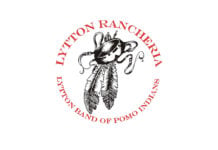by Troy Wyatt
On a normal day, entertainment is an inherently risky business operating on thin margins. Some risks include competing with other venues, late booking confirmations, and of course, the number of production expenses that go along with producing a live concert. In a pandemic recovery world, casinos now need to navigate normal risks in addition to regulation, health concerns and public fear. The challenge is complex, but with the right strategy, the solution is simple.
A wise man once said, “You never let a crisis go to waste,” because a crisis is an opportunity to do things you could not do before. Customer expectations have never been lower, talent agents have never been more flexible, and restructuring is manageable. All of these factors need to be top of mind when restarting your entertainment program in order to manage expectations.
A lot of unemployed entertainers are readily available, but are your patrons ready to buy tickets? Selling concert tickets (or not) is a risk for a concert venue in any climate. After closing for more than a year, the chances of not selling tickets are significantly increased for many reasons.
The biggest reason a venue might not sell tickets is that many concertgoers have realized that their health and family are more important than the risk of going to a live concert. Moreover, patrons who buy tickets in current conditions are likely to have money in limbo should the event get rescheduled. Not to mention the millions of people that are still unemployed and probably do not have enough money to enjoy themselves the way they did previously. These are some of the new obstacles every venue will face while restarting an entertainment program.
Additionally, these days, resources are limited, time is more precious than ever, and specialized labor for hire is non-existent. While some casinos may be ready to book a $145,000 act, others consider the idea to be unthinkable or plain unnecessary. This is especially true because of the historic gaming numbers achieved without live entertainment and the unemployment rate. It’s evident that industry dynamics are changing in a big way.
In the near term, you aren’t catering to the masses anymore, you are only catering to those who are ready to enjoy live entertainment again. Don’t forget that the same limited group of people is also potentially expected to wear a mask, be inoculated with vaccines, and possibly have to social distance. Try not to see this as a negative though. In many ways, restarting an entertainment program is actually an opportunity presenting itself to increase your program’s efficiency, negotiate better talent prices, and make strategic adjustments.
Use the tips below to manage risk while re-opening a casino entertainment program after the pandemic:
• Start off small and build momentum.
• Avoid unnecessary expensive commitments and vanity bookings in the short-term.
• Renegotiate deals with the artists that were canceled.
• Use four-wall deals and promoter profit deals to your advantage.
• Increase ticket prices and/or ticket fees.
Starting off small makes sense for many reasons. Try booking a well-known local comedian or musician and use ticket data to determine scalability and profitability. Starting small will allow you to identify gaps, production challenges, labor issues, and other operational deficiencies. After your first event, analyze the data and use it to establish an intentional strategy to sustainably scale your program.
Avoiding expensive commitments and vanity bookings will help you prevent immediate and massive deficits. Don’t forget that new restrictions could be implemented in your region. This means overcommitting may lead to high-priced obligations down the road, should the entertainment industry shift suddenly. Additionally, your venue will be expected to fulfill a date later even if the show is no longer relevant or you were losing money the last time it was on sale. Sometimes canceling a show is the best choice, while other times rescheduling can help your strategy. What matters most is booking affordable shows that make money from ticket sales and keeping operations manageable, while your audience’s perception catches up to their desires.
Use this time to revisit old offers that didn’t work out. Many entertainers are open to working on new deals. In a pandemic recovery world, the risk is expected to be shared by both sides (talent buyers and artists/agents).To be fair, that is how it works in many other venues outside of Indian Country. The theater down the road will have a less weighted deal for the same artist you took a loss on. Regardless, the old days of only paying an inflated flat rate for a legacy act are extinct, provided you get onboard.
Using four-wall deals should be a staple in your program, but many casinos fail to harness the true power of the deal structure. Four-wall events are lucrative because the nature of this deal is intended to be mutually beneficial, regardless of the outcome, and the risk is shared. Everyone has skin in the game. Many entertainers who are ready to rent your room will include comped tickets, weighted splits, and more within a four-wall deal. Additionally, your marketing team gets to market a show that adds value to your brand but is less expensive to produce. In other words, four-wall deals can balance your entertainment program and lower your overall risk.
Raising ticket prices and fees is the fastest way to increase profit, lower risk, and generate incremental entertainment revenue. The best part of controlling the right ticketing platform internally is having the ability to set, adjust, and retain your ticket fees. While demand has plateaued, those willing to buy a ticket are often willing to pay a little more for the right kind of entertainment. Aim to gross 30% (or more) than you paid for the artist in ticket sales.
These are only a few ideas to help you manage risk and restart your casino entertainment program. What works best for your venue will depend on your region and the psychographics of the concertgoers within it. Re-launching an entertainment program is one thing; re-launching a profitable program is another. In all likelihood, a combination of mindfulness, foresight, and strategic planning will be necessary for any tribal casino looking to restart its entertainment program. Luckily, casino patrons are naturally more risk-tolerant, given their behavior while gaming. Rebuild your program while keeping your endgame in mind.
Troy Wyatt is principal owner of Seattle Entertainment Group, a Native owned and operated casino entertainment company. He can be reached by calling (425) 530-9913 or email [email protected].













































